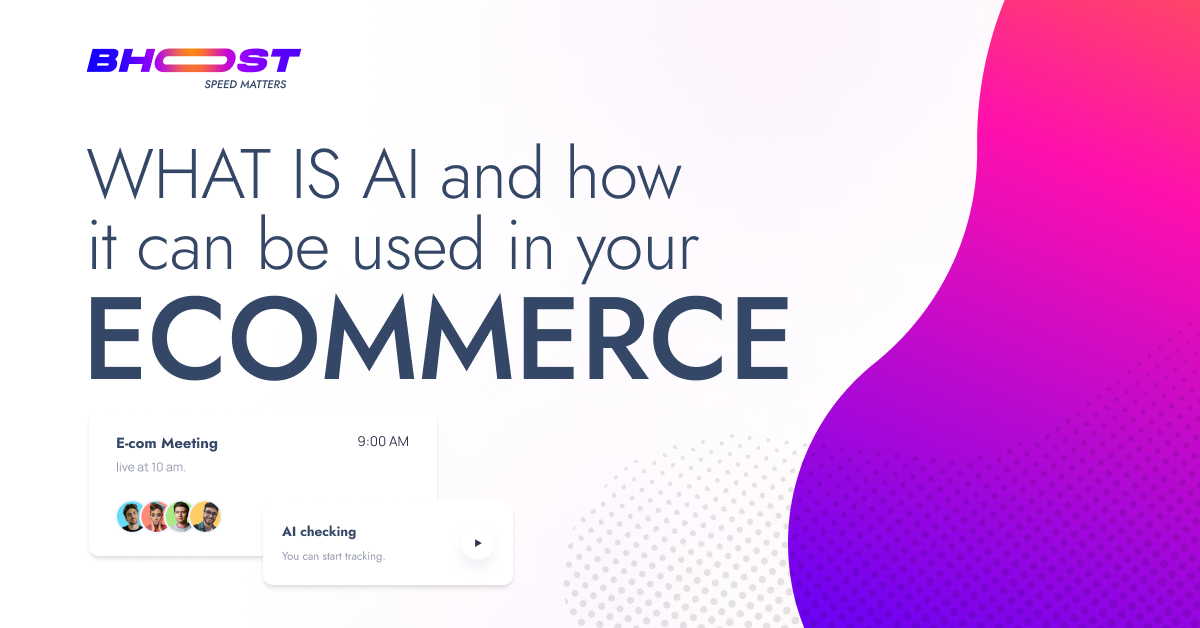There are now many definitions related to AI, but the one that best defines this concept could be that theArtificial intelligence is the whole set of technologies that allow the reproduction of some functions of the human brain. But obviously we are not talking about science fiction realities, the ones we often see reported in some films, where robots act on their own initiative and rebel against their creators…
Rather, they are tools thatthey can accompany human intervention, facilitating tasks and saving precious time. In fact, these are functions of a more perceptive and classificatory type. In short, nothing to do with types of intelligence capable of formulating consciousness or their own thoughts. So essentially, we are still a long way from fully emulating the functionality of our brain.
However, as mentioned, the use ofArtificial Intelligence can be of great help in many fields. What we are interested in analyzing at the moment is understanding how it can be used for the E-Commerce world. What tools are currently available for this industry and what can actually be done with this new technology.
The use of AI in e-commerce
Artificial Intelligence (AI) is revolutionizing the world of e-commerce in ways that might have seemed futuristic just a few years ago. AI is a field of computer science that focuses on creating machines that can “think” and learn in a similar way to humans, obviously with the meanings we talked about before. This concept, once the preserve of science fiction, is now becoming a concrete reality, radically transforming the way companies interact with customers and manage their operations.
Currently, there are various Artificial Intelligence (AI) tools available for the e-commerce industry. Here are some:
- AI chatbot: AI chatbots, like Amazon’s Alexa, are able to interact with customers, answer questions and process orders, significantly improving the customer experience.
- AI recommendation systems: These tools use AI to analyze customer data and make personalized product recommendations. An example is Netflix’s recommendation system.
- Predictive analysis systems: These tools use AI to analyze customer data and predict future behavior, helping companies personalize the customer experience and increase sales.
- AI visual search technologies: These tools allow customers to search for products using images instead of keywords.
- AI inventory management systems: These tools use AI to predict sales trends and optimize inventory management.
- Dynamic pricing systems: These tools use AI to analyze various factors and determine the optimal price for a product at any given time.
- Content marketing: There are many content marketing tools enhanced with AI, capable of carrying out network analysis, content production and dissemination and performance analysis.
- Email marketing: Again there are many AI-powered email marketing tools. In fact, in addition to marketing automation, which is ultimately already a form of artificial intelligence, we can now also associate the specific functions of AI as understood today, with the application, for example, of machine learning algorithms to this sector.
Artificial Intelligence (AI) is already changing the world of e-commerce in significant ways, and its future potential is even more exciting. With AI, we can expecta more personalized and intuitive online shopping experience. I AI chatbotthey will be able to understand and respond to customer requests in an increasingly sophisticated way, making the interaction with e-commerce more like a dialogue with an expert sales assistant.
Furthermore, with the use of themachine learning, companies will be able to predict customer preferences and behaviors with unprecedented accuracy. This will mean more accurate product recommendations, which in turn will lead to higher conversion rates.
AI can also revolutionizee-commerce logistics. With the’AI data analysis, companies will be able to accurately predict product demand, thus optimizing inventory management and reducing costs.
Another important aspect is the security. With AI, verification and security procedures can be significantly improved, reducing the risk of fraud and ensuring greater protection for sensitive customer data.
In conclusion, theAI has the potential to make e-commerce more efficient, secure and personalized. However, to fully exploit these opportunities, it is essential to invest in adequate infrastructure, such as servers dedicated to AI.
The importance of a server dedicated to AI
To make the most of AI, this is important have a dedicated server for AI. This is because AI requires a large amount of computing power and storage. A dedicated server can provide these resources, ensuring that the AI can function efficiently. Additionally, a dedicated server can provide a higher level of security, protecting sensitive data that AI may process.
Conclusion
In conclusion, AI offers a number of benefits for e-commerce, from chatbots that improve the customer experience to machine learning that personalizes the customer experience. However, to make the most of these technologies, it is essential to have a dedicated server for AI. With the right investment in infrastructure, AI can become a powerful tool to improve the efficiency of your operations, personalize the customer experience, and ultimately increase the profitability of your e-commerce business.
Are you interested in learning more about this discussion, contact us!

Free 30-days trial Hosting Fast, Secure and Optimized
Switch to Bhoost with 30 days free and migration included
Free 30-days trial


